Take It To The Grave Wines
Hubert Lamy
En Remilly Saint-Aubin 1er Cru Chardonnay 2008
Pale to mid Lemon in colour. Funky aromas which blew off after 20 minutes Citrus aromas. On the palate citrus with pronounced minerality and acid finishing with a salty note inviting you to take another sip. I remember reading about the terroir of St Aubin which gives it a cool environment. Delicate wine. Drinking well now but will go on for a few years yet. Impressive. — 7 years ago
Château La Croix St. Georges
Pomerol Red Bordeaux Blend 1990
🥇 After my failure to take notes last time, we couldn’t resist popping another of these 1990 beauties & it definitely delivered again 😍 at €90 it’s just simply incredible for the money 👍 My favourite Pomerol Chateau for the money hands down 👏
📍 La Croix St Georges 1990 Pomerol 🔝
🏵 98 points
🍷 Opaque ruby w/ brick edge
👃 Bordeaux nasal sex of soggy earth, sooty underground 🚇, char-smoked oak, old leather, damp musty cellar, mushroom, mirabelle plums, damson compote, obliterated blackcurrant, herbs, toasted fig, bitter mocha & liquorice
👄 Med body of creamy earthy smooth silk dark plum & berry bathed in ground mocha & liquorice
🎯 Long mocha liquorice dark fruits mouth filling linger w/ a big happy smile 😍
👏 @josephjanoueix @jeanphilippejanoueix 🏆 — 7 years ago

Domaine Guion
Cuvée Prestige Bourgueil Cabernet Franc
Lively Loire Cab Franc. Ripe raspberries, white pepper, and funk on the nose. Palette sees tart cranberries, overripe raspberries, cured meat/animal fat, some funky wet hay. Aftertaste is super long- minutes with red fruit and lots of cured fat/funkiness. Interesting but s bit thin and lacking some of the inorganic power to take it to next level. However at sub $20, it’s a deal if you like cab franc! — 8 years ago
Kirkland Signature
Friuli Grave Pinot Grigio 2016
Very light crisp and easy to drink. Enjoyed it by beach. A repeatable wine — 8 years ago
Produttori del Barbaresco
Barbaresco Nebbiolo 2014
I was excited to dine at the (relatively) new Union Square Cafe. The previous venue closed some time ago and caused a bit of a ripple throughout the New York restaurant scene: Rising rents wreck regarded restaurant. I prefer the look of the new venue. High ceilings, homely yet chic furnishings, beautiful lighting and a cool mezzanine level. It looks the part. The staff could not be friendlier or more helpful. And the food is every bit as good (and goodness me so filling) as it has always been.
The wine list is terrific. There are a pages of legendary wines but plenty of values to be found and the markup is very reasonable, particularly considering that tips are included.
Take the 2014 Produttori del Barbaresco. It is just superb. Classic Nebbiolo through and through. Midweight but with grip, more powerful than the translucent coloring would imply. Delicious now but would last.
It was $90 on the list. Take off the typical 20% tip and you have $72 on any other list. I saw this in a store the other day for $40, so that's a less than 2x retail markup. Not bad and very fair.
I'm looking forward to my next visit to USC. — 8 years ago

Cedar Knoll Vineyard Co (Palmaz)
Napa Valley Cabernet Sauvignon 2014
With Hillstone recently deciding to A). add a $15 corkage fee to their menu and B). take the Smith-Madrone Spring Mountain Cab Sauv. off their wine list (crime of the century in my opinion!), I wondered if there were any good wine finds left on their menu. I was pleased to find this one and enjoyed it thoroughly with my French Dip! Even better was the cute guy seen sitting across the bar from me! I would have gladly shared! Now, just need to curb my addiction to their creamy horseradish and all will be right in the world-well sorta.... — 8 years ago
Joseph Phelps Vineyards
Insignia Estate Grown Napa Valley Cabernet Sauvignon Blend 1987
Out of magnum. On the nose, slight sweet liqueur dark & mid red fruits. Ripe and sweet fruits of; blackberries, dark cherries, cherries, poached strawberries, cranberries & pomegranate extract. Black olive, a hint of pyrazine, understated vanilla. Great volcanic minerality and soils with dry dark florals. The body; round, elegant and completely resolved. Smooth as silk. The fruits are, ripe, fresh and leaner. Blackberries, dark cherries, rhubarb, sweet & sour cherries, cranberries, dry pomegranate seeds, hints of blue fruits and raspberries. Sweet tobacco & sweet suede leather, volcanic minerals/soils that are so beautiful you might eat them on their own, a touch of pyrazine, black oil, crushed dry rock powder, raining perfect acidity and a ripe, leaner, fruit driven finish that lasts over a minute. Beautiful wine and a treat to sip slowly and just take it in. — 8 years ago
Marc Plouzeau
Les Cornuelles Vieille Vigne Chinon Cabernet Franc
Big cab franc. Showing big fruit with enough herbaceousness to balance it out. May take a couple years to bloom but drinks great now — 9 years ago
Château Haut-Bergey
Pessac-Léognan Red Bordeaux Blend 2004
How is it? "It's Bordeaux. It will take 2 hours to open up." This one will need 4 hours. — 9 years ago
Macchia
Amorous Sangiovese 2013
Big and bad for this grape. Plenty of tannin, oak and fruit. Maybe a touch over the top to take it putt of balance. — 10 years ago
Banfi
Brunello di Montalcino Sangiovese 2007
Dark ruby in color with a wide brick rim.
Strong nose of black plums, cherries, cloves, light vegetables, oak, light tar, dark chocolates, coffee, earth, leather, light vanilla, light vegetables, wood and black pepper.
Medium plus in body with medium acidity and nice legs.
Dry on the palate with blueberries, cherries, sweet raspberries, tobacco, spices, peppercorn, chocolates, tobacco, herbs, vegetables, wood, light cloves and tar.
Medium on the finish with fine grained tannins and tangy raspberries.
This Italian Brunello is drinking very nicely now.
Well balanced with a great mouthfeel and nice complexity. This 12 year old is peaking now.
Needs 3 hours to open up properly and show the complexity. Do take your time with it, as it is well worth it.
A very nice wine to sip on, and share with friends and talk about. Good with food as well. I paired it with a charcuterie board of meats and cheeses, and light appetizers.
Robert Parker 91 points. Wine Enthusiasts 92 points.
100% Sangiovese grapes, were aged for 24 months in Oak barrels.
14.5% alcohol by volume.
92 points.
$85. — 6 years ago

Azienda Agricola Montevetrano
Colli di Salerno Cabernet Sauvignon Blend 2014
Clear and clean, medium intensity in color, ruby. Toasted vanilla, nutty nose, perhaps cedar. Even as I take notes, it's changing. Coconut, cedar, pine/mint with blackberries in the background. Medium plus bodied, Medium plus tannins . Medium minus acidity. I love this wine. There's a tremendous complexity to it. I know I'm missing a lot and as I said it's changing. This is my second bottle--its consistent. Perfect wine for pairing with any beef or tomato centric dish. Really enjoyable!!!
93+ points — 7 years ago
Château Moulin de Tricot
Margaux Red Bordeaux Blend 2014
Wow good. Doesn’t need to breathe. Take it out and drink it. — 8 years ago
Domaine Tour Saint Michel
Cuvée du Lion Châteauneuf-du-Pape Red Rhone Blend 2010
My notes on this from May of 2017 still apply. Popped and poured. Drank well over two days. Immediately this wine impresses visually. Sure, the color is an expected deep garnet but what's most striking is the fact that it's never completely opaque at the core. You can just barely get the faintest amount of light to see through it. It's quite beautiful, really. The nose is initially a bit reticent but a few minutes of air in the glass does the trick and then it really begins to show off the most lovely perfume of mixed red and dark fruit; so fresh and pure with just a flash of garrigue. No perceptible heat on the nose. On the palate it's a veritable wonder of berries, Rainier cherries, black berry liqueur, and just a touch of fine white pepper. The body is perfectly proportioned and the finish lasts for over 30 seconds. In summary, this is an incredibly balanced 2010 CdP that is already hitting its prime. Personally, I felt it was really at its very best about two hours in which leaves me to believe it should be a great pop and pour for the next couple of years and potentially has the balance to be great for longer. That being said, there is no need to decant, just pull the cork, pour and enjoy the evolution in the glass. The hard part is allowing it to last for two hours and longer. It should be noted that this is dangerously quaffable wine and it wouldn't be hard to take the whole thing to the head. Might as well drink these sooner than later as I'm always a bit wary of CdP much beyond the 10 year mark, where I tend so find many of them fall apart on the palate. Perhaps others with more experience in the long-term ageing of CdP can chime in though. Absurd value at $30.
As a side note, this paired very nicely with pan fried pork savory bacon wrapped filet mignon. — 8 years ago
William Hill Estate Winery
Napa Valley Cabernet Sauvignon 2014
Continuing in my Napa cab education this showed up at the door for me. It is excellent winter wine. It would warm you even if chilled—at 15 % abv no doubt but the taste is coziness defined too: ripe cherries, blackberry preserves on some sort of cheese on an earthy whole whole wheat cracker. The tannins could use, say, one or two more years to fully integrate but they aren’t objectable. Holiday spices and a whiff of forest floor and a long plummy finish round it out. Take this wine to an ice skating party if such things exist in your life. — 8 years ago
Greek Wine Cellars (D. Kourtakis)
Santorini Assyrtiko 2015
Very nice white wine, but not very complex at the same time. Stand alone, it is a citrus packed, high acid, crisp white similar to the way a dry Sémillon from Australia drinks. Combined with the Mediterranean spices in Greek and Med cuisine, and it is perfectly at home. Might just take a little journey through Greek wine this next month and see what I find! — 8 years ago
Villa Creek Cellars
Garnacha Paso Robles Grenache 2015
Gotta love Cris Cherry's take on grenache (my favorite varietal). This one is a bit young - could probably use a year or two more in the cellar - but it still boasts great fruit on the nose (albeit a bit restrained for a Paso wine) with a nice, medium-plus bodied palate and plenty of backbone to suggest several more years of evolution. If you're opening it up now I'd suggest a 1-2 hour decant, but this is a great QPR for a Paso grenache! — 8 years ago

Lokoya
Diamond Mountain District Cabernet Sauvignon 2005
Top 2-3 Napa Cabs I've ever had. Magical nose, cassis, cocoa, red flowers. Rich but nicely aged mid-palate, spreading into a wide swathe of candied red and black fruit, soft but powerful. Secondary stuff in spades. Then - an explosion at the back-end of cedary fruit and fig, tobacco, dark chocolate that lasted for >60 seconds. Just a monumental wine, sadly a solo.
This is note #500 for me, grateful to so many Delectable contributors who take the time to educate and expand my wine perspectives (or, in the case of @Bill Bender...other stuff, too!). Thanks to @Anthony Lombardi @Kimberly Anderson @Jörgen Lindström Carlvik @Jeff Savigny@Ron R@Shawn R @Richard Steinberg @Martin G Rivard (who is living the dream), @Greg Gregory among so many others, not to mention @Roman Sukley with magical reach to inaccessible, iconic SQNs (and the will to pop them) and frank open perspectives from legendary winemakers like @Mike Smith and @Cathy Corison, you all make this a neat community of which I try to be a small contributor.
Finally - a renewed plea to @Antonio Galloni to return "trending" to this community, as it was stolen by the bean counters! I'm no social media expert (I do have 2 teenagers!) but I'm pretty sure that "trending" speaks to the integrity and will to contribute of an entire community...take a look! — 9 years ago

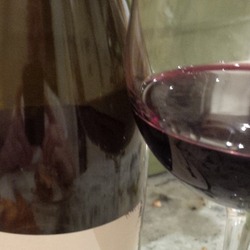
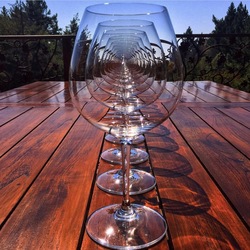
Château Lynch-Bages
Grand Cru Classé Pauillac Cabernet Sauvignon Blend 1997
Fantastic Bordeaux. Lots of earth. Curious to see how it would be in 5-10 years. Tannins will prob take this gem out for several years to come. — 12 years ago
Three Rivers Winery
River's Red Columbia Valley Sangiovese Blend 2015
This is a value wine. You pour it for parties because it’s a crowd-pleaser but you don’t mind a little spillage. It’s also a versatile food pairer thanks to the acidity of the Sangiovese. The hints of oaky influence add a subtle smoke to the cherry flavor after the bottle has a moment to breath. A creative Italian take for Washington. I approve at the price point! — 6 years ago
Monmousseau
Clos le Vigneau Vouvray Chenin Blanc 2016
We had Monmousseau’s sparkling Chenin last night, so tonight we are having one their still versions. The 2016 Clos Le Vigneau. This is a ripe, juicy take@on Chenin with bright acidity pinning it alll together. One of my favorite records from the incomparable @joannanewsom to accompany this tonight. Haunting & beautiful across 3 LP’s. — 7 years ago
Casanuova delle Cerbaie
Brunello di Montalcino Sangiovese 2004
The nose reveals, black & bing sour cherries, blackberries, slightly baked strawberries, blueberries, some black raspberries, pomegranate extract and hint of plum, a fair amount of vanillin, soft limestone, whiffs of other baking spices, black tea, rich dark soils, faint crushed rocks, beautiful, fragrant, bright, blue, red and dark red florals.
The body is round & full. The tannins just starting to hit a good point of softening and rounding, yet have 10 plus years ahead. The structure, tension are hitting their stride. The length and balance are just getting to near perfect form. Two years ago, this wine was not ready and is now at the place I was hoping to get. I have two bottles left and I will have another in five years. Based on that performance, another in three to five plus years more. It’s the evolution that is so much fun to follow.
Black & bing sour cherries, blackberries show more on the palate and the pork pasta bring them out more deeply, slightly baked strawberries, blueberries, some black raspberries, pomegranate extract, cranberries and hint of plum, a fair amount of vanillin, soft limestone, nuances of volcanic minerals, soft baking spices, dark medium intensity of spice, black tea, rich dark soils, faint crushed rocks, beautiful, fragrant, bright, blue, red and dark red florals. The acidy is like a fresh water river. The long finish is unbelievably elegant, well balanced with a touch more fruit than earth, polished and persists seamlessly for several minutes.
I look forward to trying this wine again as it continues to evolve and improve over the next five to ten years...should be stunning! Well made Brunello’s simply take more than ten years in bottle to even begin to amaze.
Photos of, a wide hilltop shot of Casanuova, field hand harvesting their Sangiovese, large oak fermentation cask so there is less noticeable oak influence on the wine and their sloping vines on a sunny beautiful day.
@Oenotri Napa — 7 years ago
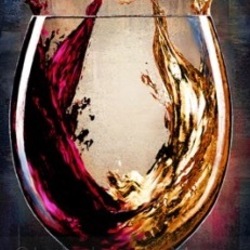

Rasa Vineyards
QED Walla Walla Valley Red Blend 2008
This wine will take you down a tasteful journey! Needed about 5-10 minutes to breath, but once it opened up, it was delicious. Beautifully smooth on the tongue, reminiscent of a heavier Pinot with darker cherry flavors and a nice oak balance. Medium tannins, full body and long finish. — 8 years ago
Dom Pérignon
Brut Champagne Blend 1978
Both me and the girl enter our 40th year in 2018, so we are celebrating a couple of days early with the oldest champagne we've ever had. Special is an understatement. Tastes like I'm butt naked, face down in a seafood tower on the top of the Empire State Building, waiting on a helicopter to come take us to Waffle House to sober up before we get in a Ferrari to see a 35mm print of E.T. Endless thanks to @Christian Moses for this bottle. Will remember it for a long time to come. ❤🥂 Happy New Years Friends — 8 years ago

Château Cos d'Estournel
Saint-Estèphe Red Bordeaux Blend 1991
Is there any meal better than steak (Ribeye) and well aged Claret? This is another 1991 Bordeaux experiment of mine. 1991 was a vintage with horrible frosts and a less than favorable growing season, right? A vintage critically panned. This is my 3rd recent 91 from a good producer. And again, it didn’t disappoint. Like 97 and 07, it’s better with the right bottle age than young. Magic evolution happened in the bottle way down the road. This 91 is in great form with a fair amount of life ahead of it. On the nose; a little ripe fruit funk, wonderful dark & lighter red cassis, ripe blackberries, dark cherries, poached strawberries, plums, hues of blueberries, black raspberries, dry cranberries, vanilla, light cinnamon, rich, black turned earth, cedar, soft leather, dry stones, dry top soil, notes of dry herbs and fresh & dry red flowers. The body/palate is medium, round, ripe & still fresh. The tannins nearly completely resolved. Ripe, floral fruits of; blackberries, dark cherries, poached strawberries, plums, hues of blueberries, black raspberries, dry cranberries & half cooked rhubarb. Vanilla, light cinnamon, touch of clove & nutmeg, rich, black turned earth, cedar, soft leather, dry stones, dry crushed rocks, dry top soil, notes of dry herbs, a little band-aid and fresh & dry red flowers. The acidity drips over the palate and the long, well balanced, still structured, nice tension, good length finish lasts over a minute. Again, love & appreciate the 12.5% alcohol. What a beauty with and without the steak. Next time you’re in your fine wine retail shop and see a quality producers 91 that’s been well stored, buy it and have it with a Ribeye. Photos of; their exotic Estate, Chateau interior, newer barrel room and their vines as viewed from the front of the Chateau that are across the road. Producer notes and history...Cos d’Estournel has a long distinguished history in the St. Estephe. Louis Gaspard d’Estournel, gave his name to the estate after founding in 1811. It did not take long before Cos d’Estournel became famous with wine lovers and royalty all over the world. In those early days, Cos d’Estournel did not sell through Negociants. The owner preferred selling his wine directly to his customers. In fact, Cos d’Estournel was exported to numerous countries across the globe, with a large portion of the production being sold to India. It was that connection to India that inspired much of the unique, east Indian design we see at Cos d’Estournel today. Cos d’Estournel was one of the first Bordeaux Chateaux’s to bottle, label and sell their own wine. This practice continued until the death of Louis Gaspard d’Estournel in 1852. If you’re at the property, the statue on the bench in the front courtyard is of the founder, Louis Gaspard d’Estournel. The Estate was then purchased by an owner that sold their wines on the Place de Bordeaux using the negociant system. If the Chateau was not selling their wines through the negociant system, it would never have been included in the 1855 Classification. Imagine that! So, it turned out to be a fortuitous decision. Cos d’Estournel was sold to the Charmolue family owners of the neighboring Estate of Chateau Montrose. They continued to own the estate until 1917, when it was bought by Fernand Ginestet. This purchase was the beginning of the next major step in the development of Cos d’Estournel. Decades later, the grandchildren of Fernand Ginestet, Jean-Marie Prats, Yves Prats and Bruno Prats took over ownership and management of Cos d’Estournel. In 1995, Bruno Prats sold the property to the Merlaut family, owners of the Taillan Group. The next era in the development of Cos d’Estournel took place in 2000, when Cos d’Estournel was bought by the industrious and wealthy Michel Reybier, who earned his fortune in the food industry. Michel Reybier hired the son of Bruno Prats, Jean-Guillaume Prats to manage Cos d’Estournel. Things further improved with the efforts of Jean-Guillaume Prats who helped design the most modern wine making at that time. A complete renovation of Cos d’Estournel took place in not only the wine making facilities and cellars, but in parts of the Chateau as well. While the wine making facilities are completely modern with their 100% gravity design, the outward appearance retained the original design and feeling that has always been a part of Cos d’Estournel. On October 15, 2012, Jean Guillaume Prats announced he was leaving Cos d’Estournel to join LVMH (Pichon Baron). Jean Guillaume Prats was replaced by Aymeric de Gironde. Following the departure of Aymeric de Gironde in 2017, the owner, Michel Reybier took over managing the Estate. What makes the remodel special is that the cellars of Cos d’Estournel are entirely operated by gravity. There are no pumps of any kind to force the wine. The purpose is to allow a gentleness to the wine and improve its purity and allow for the expression of their terroir. It set a new benchmark for cellars not only in the Left Bank, but in all of Bordeaux. Perhaps, the most inventive part of the cellars is the four 100 hectoliter lift tanks or wine elevators that replace the pumps used in the traditional pumping over and the racking off processes, which introduce air and often destabilize the marc. From the moment the grapes arrive, everything travels by the flow of gravity. Jean Guillaume Prats called this process a “pumpless pump over.” The 91 hectare vineyard of Cos d’Estournel is planted to 65% Cabernet Sauvignon, 33% Merlot, 1% Cabernet Franc and 1% Petit Verdot. The vineyard is located extremely close to the border between Pauillac and Saint Estephe at the southern tip of the Saint Estephe. The Estate has very old Merlot vines as well, which date back more than 100 years. Part of the terroir is situated on the hill of Cos, which is at a high elevation for the Medoc at 20 meters. They also make a second wine called Pagodes de Cos. This is a great wine to buy in very good vintages. Especially, if your budget prohibits you from purchasing their first wine. — 8 years ago







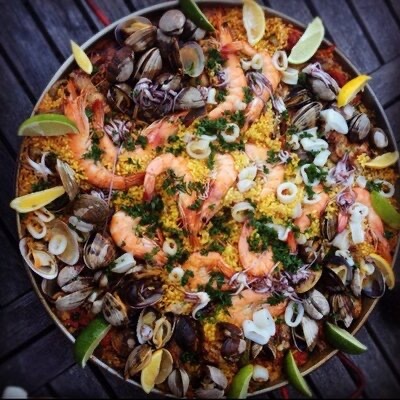







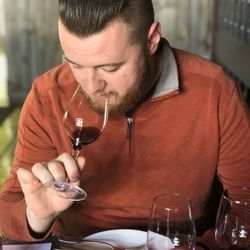
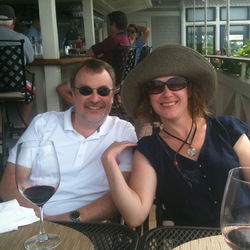




Connor Smith

Sanlúcar de Barrameda was the port that Christopher Columbus set off from in 1492. Just 1 year earlier, duties on wine exports from Sanlúcar had been abolished to take advantage of English merchants desperate for new supply after the loss of Bordeaux.
It began a centuries-long romance between Sherry and English wine lovers, as immortalized in Shakespeare's Henry IV Part 2, when Falstaff glorifies sturdy Spanish 'sack' over thin Bordeaux 'claret' and Rhine 'hock'.
But the honeymoon, quite literally, was not to last. Henry VIII's divorce from Catherine of Aragon drove a wedge between England and Catholic Europe, and left English wine lovers in need of a new source once again. But Sherry fanatics wouldn't have to go entirely without. When Sir Francis Drake sailed into Cádiz and burned the Spanish fleet in 1587, he carried away 2,900 butts of Sherry - enough to supply London for years - as his most famous prize.
(This is adapted from notes for Le Dû’s Wines ‘History of Wine 1453AD-Present’ seminar, where this wine was poured) — 6 years ago